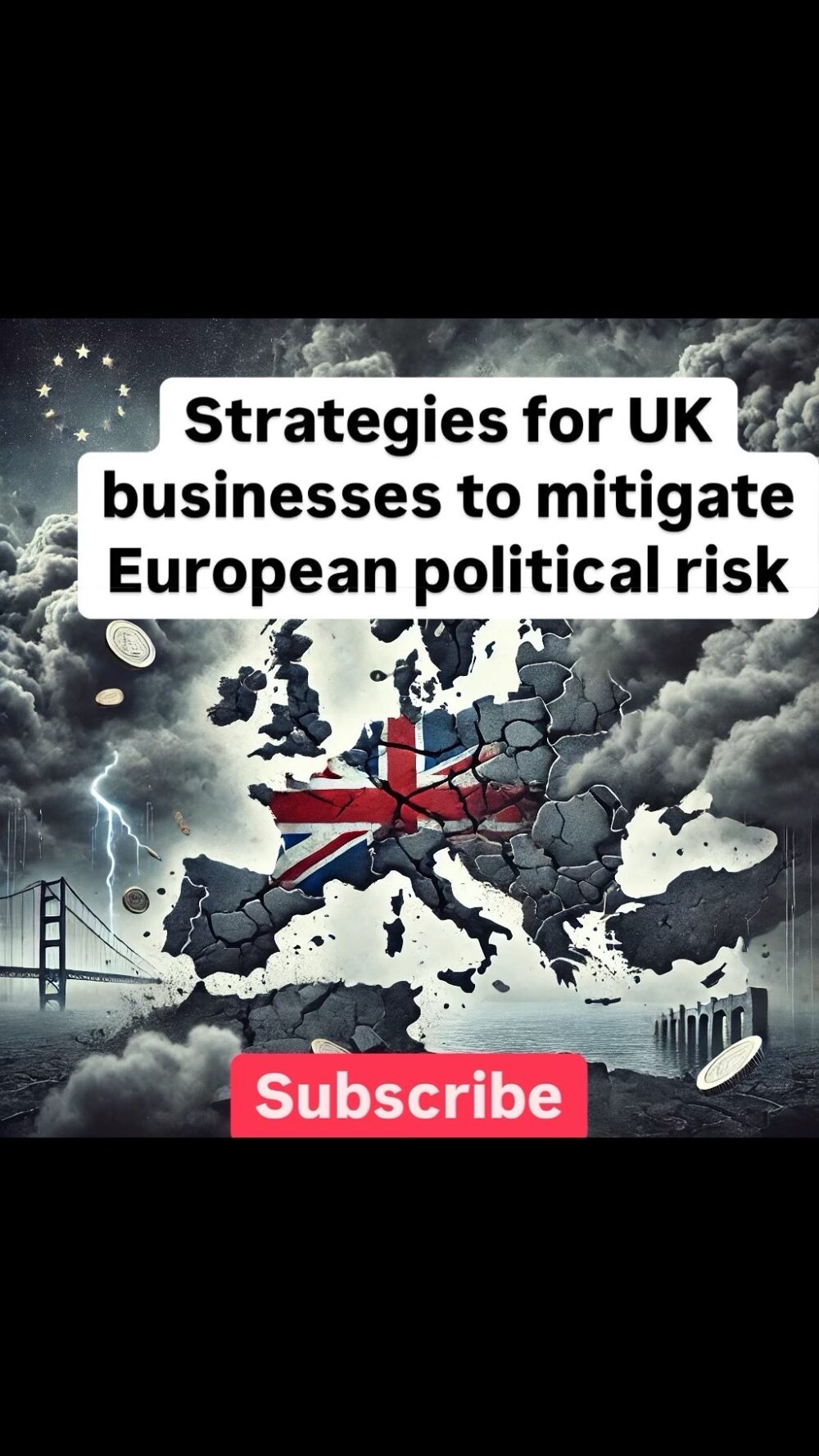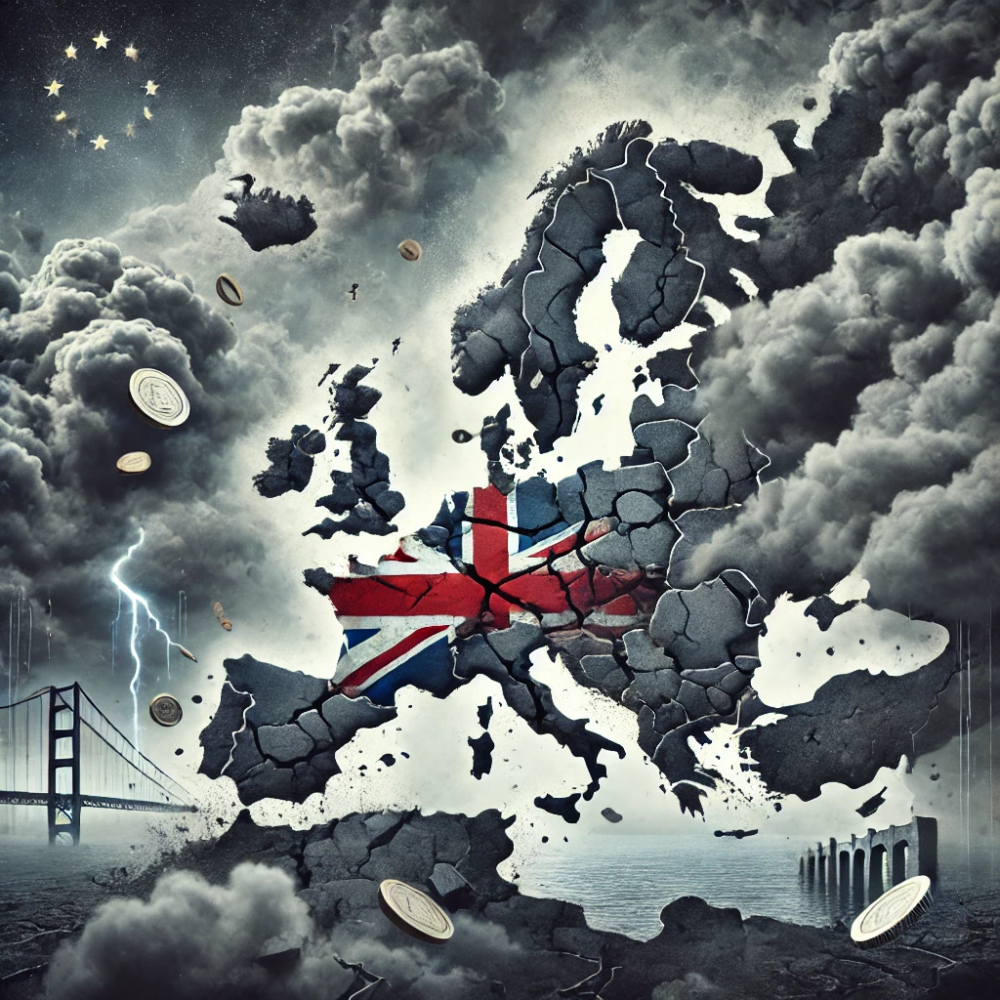Europe in Turmoil: A Wake-Up Call for UK Businesses
The political landscape of Europe is shifting dramatically. Germany, the economic powerhouse, is grappling with a leadership vacuum and a fragmented political scene. France, meanwhile, is facing a wave of social unrest and a growing sense of disillusionment. These twin crises threaten to destabilise the European Union and have profound implications for UK businesses operating within and beyond the bloc.
This isn’t just political theatre. The consequences are real. Supply chains are disrupted, investment dries up, and consumer confidence plummets. Uncertainty reigns supreme, making it incredibly difficult for businesses to plan and thrive.
But this isn’t just a time for despair. It’s a time for action. By understanding the risks and seizing the opportunities, UK businesses can navigate these turbulent waters and emerge stronger than ever.
This article will delve into the intricacies of the German and French political crises, analyse their potential impact on the EU, and provide actionable insights for UK businesses to mitigate risks and capitalise on emerging opportunities. We’ll explore the evolving geopolitical landscape, the implications for trade and investment, and the strategies that can help UK businesses thrive in an uncertain world.
The German Malaise: A Power Vacuum in the Heart of Europe
Germany, long the engine of European growth and stability, is facing a period of unprecedented political uncertainty. The departure of Angela Merkel, after 16 years as Chancellor, has left a void in leadership. The current coalition government (editor : now fallen apart), a fragile alliance of three disparate parties, is struggling to maintain unity and navigate complex challenges.
The war in Ukraine has exposed deep divisions within German society. Debates rage over energy policy, defense spending, and the country’s role in the world. The rise of the AfD party, fuelled by anti-immigration sentiment and economic anxieties, further exacerbates political polarisation.
This political turmoil has significant implications for the EU. Germany, as the largest economy in the bloc, plays a crucial role in shaping European policy. The country’s indecision on key issues like energy transition and defense cooperation weakens the EU’s collective response to global challenges.
France: Social Unrest and a Loss of Direction
France, too, is grappling with a deep sense of unease. President Macron, despite his reformist agenda, faces widespread public discontent. Protests against pension reforms erupted across the country, highlighting a growing sense of social and economic inequality.
The rise of populism, both on the left and the right, further complicates the political landscape. The traditional party system is crumbling, and new political forces are challenging the established order. This political instability creates an atmosphere of uncertainty that can deter investment and hinder economic growth.
The EU: A House Divided?
The simultaneous crises in Germany and France threaten to undermine the very foundations of the European Union. The EU, already grappling with the challenges of Brexit and the war in Ukraine, is facing a severe test of its unity and resilience.
The lack of political leadership at the national level is translating into a lack of decisive action at the EU level. Key decisions on issues like energy policy, defense, and migration are being delayed, hindering the bloc’s ability to respond effectively to global challenges.
Furthermore, the rise of nationalism and populism across Europe is fueling Euroscepticism and weakening support for European integration. The risk of further fragmentation and even the eventual demise of the EU cannot be ignored.
The Impact on UK Businesses
These political upheavals in Europe have significant implications for UK businesses.
- Trade Disruptions: Political instability can lead to unpredictable policy shifts, impacting trade flows and creating uncertainty for businesses.
- Investment Deterrence: Political turmoil can deter investment, both from within the EU and from outside.
- Supply Chain Disruptions: Political instability can disrupt supply chains, leading to delays, shortages, and increased costs.
- Economic Slowdown: A prolonged period of political uncertainty can lead to an economic slowdown in Europe, impacting demand for UK exports.
- Geopolitical Risks: The weakening of the EU could have significant geopolitical consequences, increasing the risk of conflict and instability in Europe.
Navigating the Storm: Strategies for UK Businesses
Despite the challenges, there are steps that UK businesses can take to mitigate risks and capitalise on emerging opportunities.
- Diversify Supply Chains: Reducing reliance on single suppliers and diversifying supply chains across different regions can help mitigate the impact of disruptions.
- Invest in Resilience: Building resilience into business operations, such as by investing in technology and improving operational efficiency, can help businesses weather the storm.
- Explore New Markets: Diversifying into new markets, both within and outside the EU, can help reduce reliance on the European market.
- Engage with Policymakers: Engaging with policymakers to advocate for policies that support business growth and competitiveness is crucial.
- Embrace Innovation: Investing in research and development and embracing new technologies can help businesses gain a competitive edge in a rapidly changing world.
The Road Ahead: Uncertainty and Opportunity
The future of Europe remains uncertain. The political crises in Germany and France pose significant challenges to the stability and prosperity of the continent. However, these challenges also present opportunities for those who are prepared to adapt and innovate.
UK businesses that can navigate these turbulent waters, by embracing resilience, diversification, and innovation, will be well-positioned to thrive in the years to come.
Disclaimer: This article provides general information and should not be construed as financial or legal advice.
In today’s volatile business environment, proactive risk management is more crucial than ever.
- Sign up for our free 12-month advertising campaign to reach a wider audience and grow your business.
- Join the BusinessRiskTV Business Risk Management Club for exclusive insights, expert analysis, and networking opportunities.
Don’t let uncertainty paralyse you. Take control of your future in business.
Get help to protect and grow your business faster with BusinessRiskTV
Find out more about BusinessRiskTV Business Risk Management Club Corporate Membership
Subscribe for free business risk management tips reviews and exclusive money saving deals
Read more business risk management articles and watch videos for free

Read more business risk management articles:
- Impact of German political instability on UK exports
- French social unrest and its consequences for EU investment
- Strategies for UK businesses to mitigate European political risk
- Diversification strategies for UK businesses in a volatile EU market
- The future of the EU: Implications for UK business growth
Relevant hashtags:
- #EuropeanPolitics
- #EUcrisis
- #UKBusiness
- #RiskManagement
- #BusinessResilience










